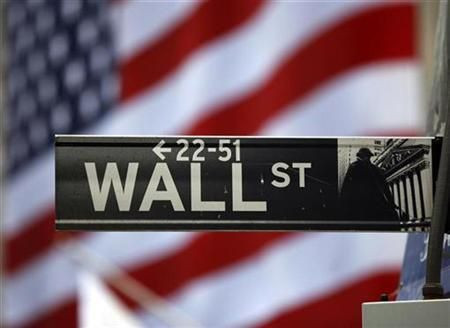Wall Street And Financial Services Industry Still Dangerously Unethical: Survey

Almost a quarter of financial professionals know of unethical or illegal behavior in their own companies, a survey by a securities law firm released Tuesday finds.
"Wall Street in Crisis: A Perfect Storm Looming," the survey by Labaton Sucharow LLP, suggests a serious incidence of ethical misconduct in the financial industry, among traders, investment bankers, analysts and hedge fund workers, among others.
Of 250 professionals polled, 28 percent felt the industry doesn’t put the interests of their clients first, while 24 percent admitted they would commit insider trading if they could get away with it. And 29 percent said people in their industry might need to act illegally or unethically to be successful, with 26 percent adding that their companies' compensation systems incentivize such behavior. Many respondents also believed that senior executives would overlook insider trading if the trades were done by a well-performing staffer.
Senior Labaton partner Jordan Thomas, who helped oversee the survey, told the International Business Times he found some results this year particularly surprising.
A similar survey last year of the British financial sector actually produced more encouraging results, indicating better behavior, said Thomas.
“Things went from bad to worse in one year,” said Thomas. “Consistently across virtually every category, it got worse.”
“Younger professionals, who you’d expect, or at least I expected, to be more idealistic and perhaps more ethical, were actually more likely to engage in misconduct and accept misconduct as the status quo,” he continued.
According to the survey, twice as many respondents with less than 10 years of working experience believed that misconduct is necessary to get ahead in the profession, as compared to those with more than 20 years in the field.
Thomas, who represents dozens of whistle-blowers reporting fraud to the Securities and Exchange Commission, said his original inspiration came as he slowly realized how many people in corporate America knew about wrongdoing.
The survey results weren’t all bad, however, as almost 90 percent of respondents said they’d report wrongdoing if given the right protections.
The SEC whistle-blower program, which Thomas helped author in his former position at the SEC, gives 10 to 30 percent of the proceeds from an enforcement case to a helpful whistle-blower.
Since the program’s launch in August 2011, the SEC has only awarded four whistle-blowers with money for assisting with investigations, with three given awards in June.
The first helpful whistle-blower received about $50,000 for his help in August 2012.
According to an annual report for 2012, the program’s 14 staff received 3,001 tips in fiscal 2012, though only those four eventually received money for their trouble.
But Thomas said the relatively few cases of monetary award, from a fund worth $453 million in September 2012, weren’t discouraging.
He said SEC investigations take two to four years to complete, and with the program’s launch in August 2011, the next several months would see ripening results from whistle-blower actions started earlier.
© Copyright IBTimes 2025. All rights reserved.






















